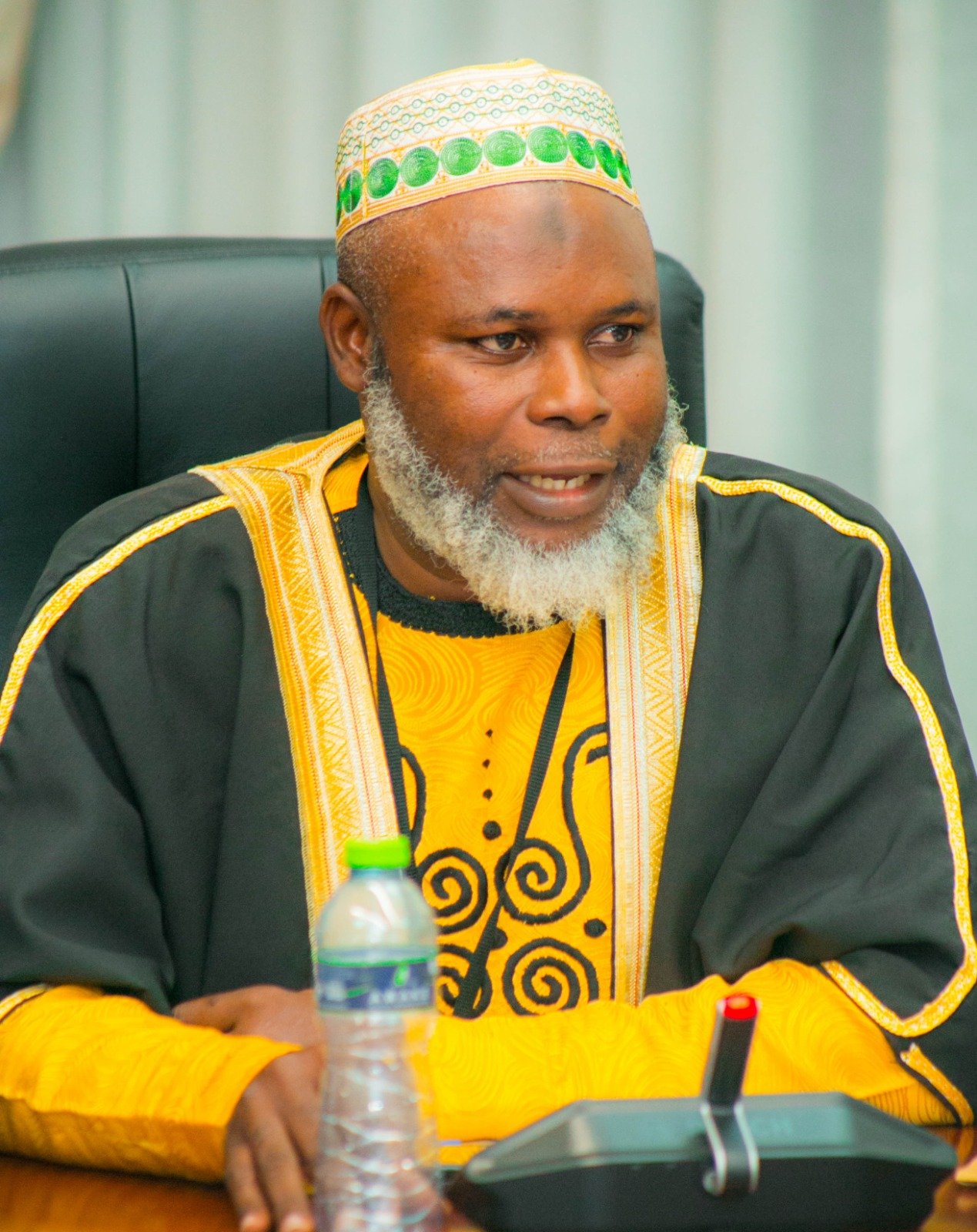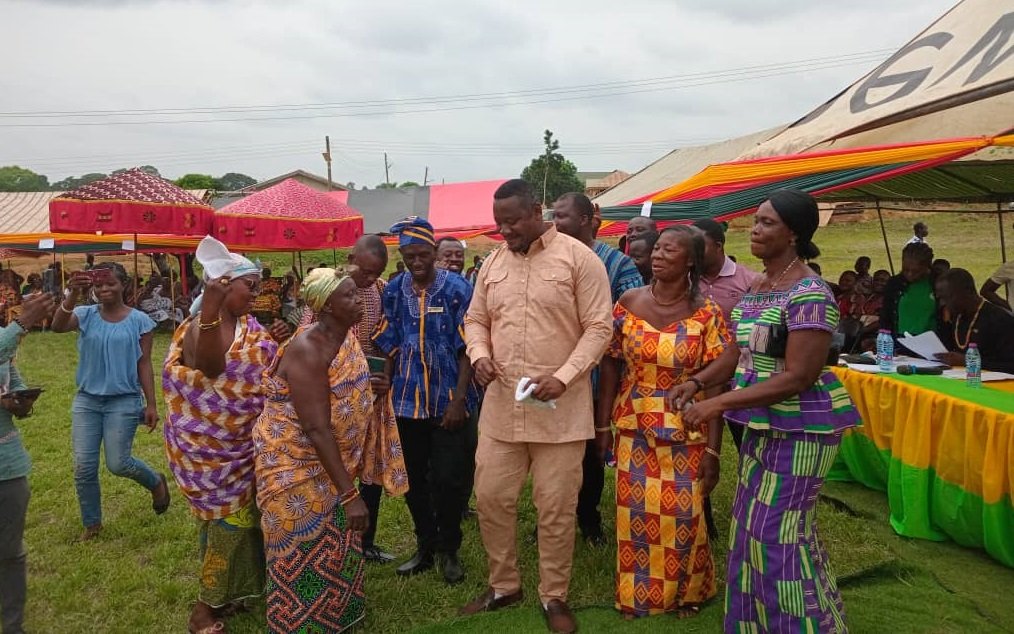Fruitful Living
What does it mean that God is good?
5 examples in everyday life
Oh, taste and see that the Lord is good; Blessed is the man who trusts in Him! – Psalm 34:8,NKJV
INTRODUCTION
We often hear the phrase, “God is good.” It is used in songs, sermons, and is sometimes used as a response when both good and bad things happen in our lives, for example: a person who avoids tragedy due to car trouble or a delayed flight. Other examples are good things that happen to people, like circumstances aligning perfectly for them to buy a house or replace their old car when previously things looked very bleak. In all these things, we often say, “God is good.”
Still, what does this mean? According to Merriam Webster, (dictionary) the definition of “God” is “the being in perfect power, wisdom, and goodness who is worshipped as creator and ruler of the universe,” however; isn’t He more than this? God is good in so many ways–the way He provides for us, guides us, and watches over us–but it goes even deeper than that. God’s goodness is who He is, and we are created in His image, so, therefore, we share His goodness.
God’s goodness shows up in our lives every single day. Although we often think of His goodness when something big happens, His goodness abounds
all the time–in every hour, minute, and second of the day, in the smallest of things around us. Here are five examples of His goodness in our everyday lives.
“Why do you call me good?” Jesus asked. “Only God is truly good-” Luke 18:19
- Waking Us Up
Every day that God wakes us up is an example of His goodness. This means we are still working towards the purpose and gifts He has given us. It shows us that He isn’t finished with us yet and that we still have a mission to fulfill. We shall not grumble and complain about getting out of bed and going to work. We should be happy that we are still breathing and living for Him. Many are worse off than us who need to see our light shining in the world every day.
“Let the morning bring me word of your unfailing love, for I have put my trust in you. Show me the way I should go, for to you I entrust my life.” – Psalm 143:8
- Pouring His Favour on Us
On the days when we are surrounded by the smallest and most significant of blessings, we know that God is pouring His favour on us. This can be anything from your coworker bringing you your favourite coffee to your boss calling you in their office to discuss a raise or promotion. We need to pay attention
to all the little things in our day, both big and small, that are a blessing to us. A lot of times, it’s the little things that mean so much.
“God has now revealed to us His mysterious will regarding Christ-which is to fulfill His own good plan-” Ephesians 1:9
3. Protecting Us
We have all heard about the woman who had car trouble and missed being in a massive pile-up on the interstate. We have heard about the disease/cancer detection that almost did not happen due to a practically-missed appointment. These are the significant ways He protects us, but He works in the smaller things too: for example, the gossip that is going around that never reaches your ears or the coworker that is trying to sabotage you but your boss, instead, sees the honest and hard work that you do. These are all ways He protects us on a daily basis.
4. Speaking To Us through Prayer
Prayer is our most powerful connection to God. It is how we express our thanks and gratitude, make our petitions known, and intercede for others. Sometimes we get an answer of “yes,” sometimes, “no” and sometimes, “wait.” Sometimes, He gives us specific instructions and, sometimes, He is silent. Other times, He speaks to us and provides us with an answer in the most surprising of ways. No matter what, He always answers, and we need to look for those answers every day. In issues big and small, He will often nudge our hearts and draw our attention in the right direction.
5. Guiding Us
We make a thousand little decisions a day, everything from deciding whether we will do our job well or whether or not to take on a client. Sometimes, we have to determine whether an opportunity is right for us and if we should follow a particular path. In these moments, God is guiding us. We need to stop, take a breath and pay attention. How do we feel in our hearts? How do we feel in our gut? We need to be still and listen to that small voice we know so well. Listen to Him whispering to our hearts about what choices are right for us. Pay attention to the signs He sends us. This is His way of guiding us and nudging us to our best selves, so that we may live in the gifts we have been given and the purpose He has for us.
Are you concerned that you will get too busy and miss the signs of God’s goodness in your life?
Let’s pray.
Dear Lord,
We thank You for allowing us to wake up every morning. Please help us to slow down in the midst of our busy lives. Allow us to see Your goodness in every day, no matter how big or small. Help us to acknowledge Your blessings immediately when they are poured out upon us. Thank You for Your protection and guidance. Help us to listen carefully and discern Your voice whispering to our hearts in answer to our prayers. Rejoice in our happiness when You say yes, help us see the reasons You say, “no,” and give us the patience and wisdom we need for when You say, “wait.”
Help us to walk in alignment to Your goodness and shine it into the world for all who need it. Allow us to see the abundance of Your goodness in our lives, and others lives every day. In Jesus name we pray with thanksgiving. Amen.
STAY BLESSED!!
For further inquires please contact us on Tel Nos. 0268130615 or 0243588467
Email: saltnlightministries@gmail.com
Website: saltandlightgh.org.
By Dr Joyce Aryee
Fruitful Living
Institution of Marriage in Islam (Pt.3)

Regarding sexual intimacy, it is also prohibited for a wife to demand money or gifts before allowing her husband to engage in sexual relations. Islam views this as a form of exploitation and sin. A marital relationship must be based on mutual love, respect, and affection rather than material gain.
Prohibition of sexual intercourse during menstruation
Islam has clear guidelines regarding sexual relations during certain times, particularly when a woman is menstruating. The Qur’an prohibits sexual intercourse during menstruation, stating:
“And they ask you about menstruation. Say: ‘It is harm, so keep away from women during menstruation. And do not approach them until they are pure. And when they have purified themselves, then come to them from where Allah has ordained for you. Indeed, Allah loves those who are constantly repentant and loves those who purify themselves’” (Qur’an 2:222).
This verse emphasises the importance of refraining from sexual activity during menstruation due to physical and spiritual reasons. However, all other forms of affection and companionship are allowed, and husbands should continue to care for their wives during this time with love and respect.
Islamic law encourages cleanliness and personal hygiene, especially in matters related to physical intimacy. After the menstruation period ends, it is recommended that the wife perform ghusl (ritual purification) before resuming sexual relations with her husband.
Rights of Children on Parents
Islam emphasises the rights of children on their parents, as marriage is the foundation of family life. Parents are obligated to provide their children with proper care, education, and moral guidance. The Qur’an states: “O you who have believed, protect yourselves and your families from a Fire whose fuel is people and stones…” (Qur’an 66:6).
This highlights the parents’ responsibility to raise their children with a strong sense of morality and faith. Children have the right to a good name, religious upbringing, and education, and they must be treated with fairness and love.
In Ghana’s law, there is Children’s Right Act, Act 560 (1989) which states among other things,
• Section 4, Right to Name, Nationality and secure a Birth Certificate for the child
• Section 6(3) (a&b), protection from neglect, provide good guidance, care etc
• Section 8(1&2), Right to education and wellbeing (medical care, diet, clothing, shelter).
How Do Married Couples Resolve Their Differences in Islam?
Islam provides clear guidelines for resolving marital conflicts in a just and compassionate manner.
The Qur’an instructs that in the event of marital discord, both parties should seek reconciliation:
“If you fear dissension between the two, send an arbitrator from his people and an arbitrator from her people. If they both desire reconciliation, Allah will cause it between them” (Qur’an 4:35).
The goal is always to preserve the marriage and restore harmony. If reconciliation is not possible, Islam permits divorce as a last resort, but it is considered the most disliked permissible act in the eyes of Allah (SWT).
Rewards of Marriage in Islam
Marriage in Islam is not only a social institution but also an act of worship that brings great rewards. The Prophet Muhammad (PBUH) said: “When a man marries, he has fulfilled half of his religion, so let him fear Allah regarding the remaining half” (Bayhaqi, Shu’ab al-Iman).
Married couples are rewarded for fulfilling their marital responsibilities, showing kindness to each other, and raising righteous children who contribute positively to society.
Scholarly Thoughts About Marriage in Islam
Islamic scholars, such as Imam Al-Ghazali, have discussed marriage as a means of controlling desires and fulfilling one’s spiritual obligations. Modern scholars like Sheikh Yusuf Qaradawi also stress the importance of mutual respect and understanding in marriage, ensuring that both partners can grow spiritually and emotionally within the marriage.
Conclusion
In conclusion, marriage in Islam is a divinely ordained relationship based on mutual love, respect, and responsibility. By following the guidance of the Qur’an and Sunnah, and observing the legal frameworks in place, such as Ghana’s Mohammedan Ordinance, we can establish strong and harmonious marriages that contribute to the moral and spiritual development of society. May Allah (SWT) guide us to fulfill our marital responsibilities with sincerity and love.
The Writer is Kpone Katamanso Municipal Chief Imam, Democracy and Governance Law Student, UCC, Member of Ghana National Association of Certified Counsellors Certified by Ghana Psychology Council
References:
1.Qur’an, Surah Ar-Rum (30:21)
2.Qur’an, Surah An-Nisa (4:34, 4:4, 4:19, 4:35)
3.Qur’an, Surah Al-Baqarah (2:187, 2:221, 2:222, 2:223)
4.Qur’an, Surah At-Tahrim (66:6)
5.Ibn Majah, Hadith 1845, 1905
6.Tirmidhi, Hadith 1162, 1084
7.Bukhari, Hadith 5090
8.Children’s Right Act, Act 560 (1989)
9.Bayhaqi, Shu’ab al-Iman
10.Al-Ghazali, Ihya Ulum al-Din
11.Qaradawi, The Lawful and Prohibited in Islam
Fruitful Living
Adansi North DCE marks birthday on Farmers’ Day

It was a momentous day for the Adansi North District Chief Executive, Eric Kwaku Kusi, last Friday November 8, as the 40th National Farmers Day district level celebration held here at Adansi Adokwai coincidentally fell on his birthday.
On a low-key, Mr Kusi momentarily took to the floor, to exhibit his dancing skills responding to cheers of “Happy Birthday to you” from the audience, to which he also responded with a gesture of thanks and praises to God, as he stepped out to address the gathering.
He was joined on the dancing floor by the assembly members singing praises to God for the life of their indefatigable DCE.
In his address, Mr Kusi commended farmers in the Adansi North and the country as a whole “who tirelessly cultivate the land to feed all of us in our communities.”
He said the government realising the important role agriculture played in the economy and the challenges facing farmers due to the effects of climate change was rolling out initiatives and policies to support climate-resilient agriculture, including agriculture insurance programme for farmers.
In all 16 farmers were awarded various prizes for their contribution to food sufficiency in the country.
Francis Appiah, 41, who hails from Adokwai was adjudged the District Best Farmer for 2024, and took home a tricycle and other assorted items. The first runner-up prize went to Sakyi Kwabena also from Adokwai and the second runner-up went to Kwame Gyamera from Dompoase.
From Alhaji Salifu Abdul-Rahaman, Adansi Adokwai







